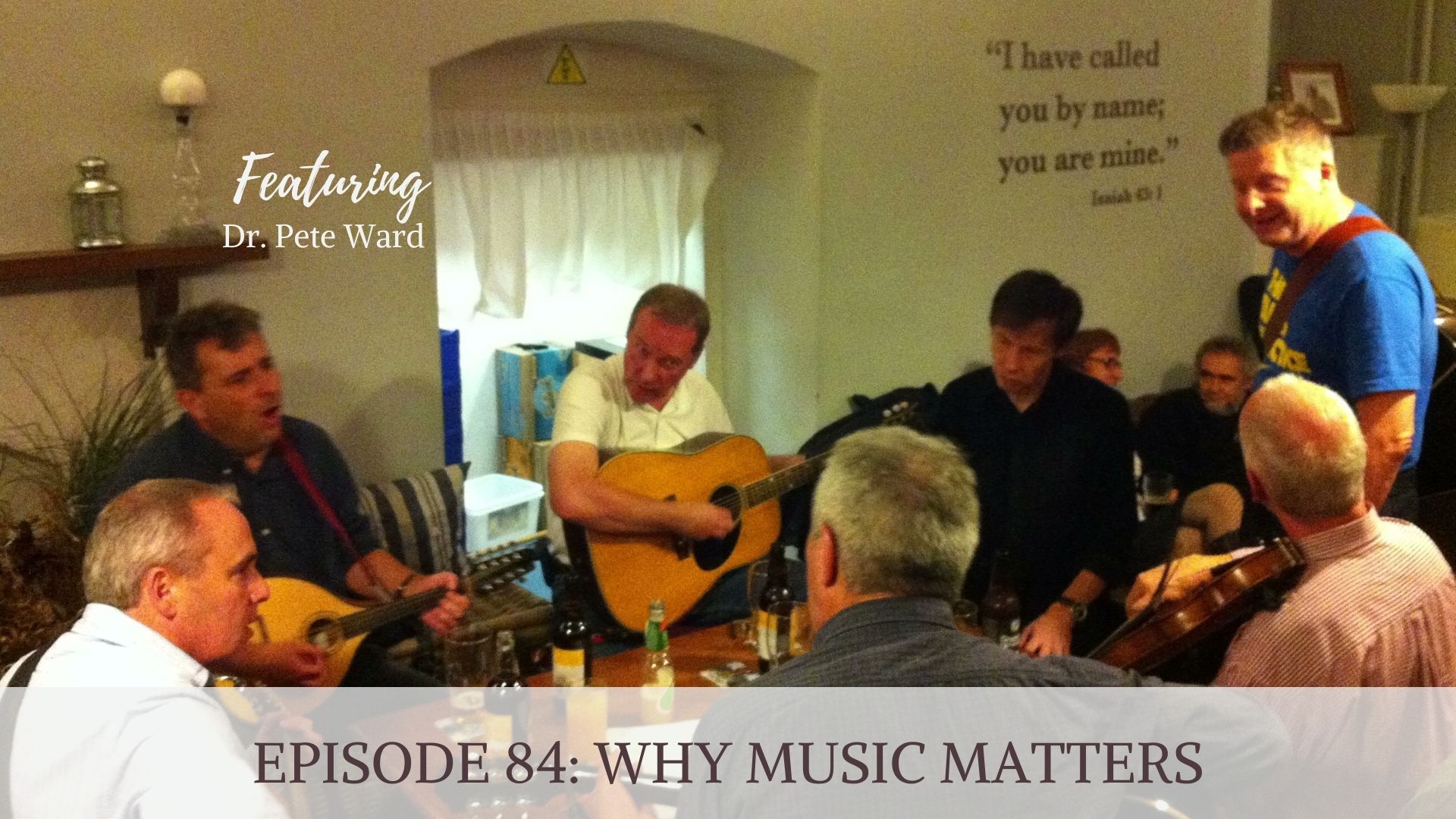In our last Episode 83, Pete and I talked about why ministers need to study culture. He gave us two reasons:
- People come to seminary shaped and formed by culture innately — largely unawares. Reflexivity is that significance of learning to reflect on who you are and how you were shaped; some good bits and some are dysfunctional.
- We need to get over thinking: the way we’ve already done it is the only way to do it; if we go on in this direction, uncritically, then there is “no ability to rethink or genuinely be creative.”
In this episode, I ask Pete: What do you find most effective for helping people see and think about the world, the church and themselves differently?
Traditionally the Bible has played this role for churches. The scriptures offer a way to reimagine the present moment. Rather than just live in the world as it appears to be, the biblical witness offers us another world that “challenges us, changes us, and renews us,” says Pete.
Many narratives and events and landscapes bring shape to particular world views. Yet consistently Christian communities say the narratives, and poetry, laws or rules of the Bible are the most important shaping forces. Indeed, some religious groups think the whole world exists inside the bible rather than the bible existing inside the world.
How does this work out?
What people say and what people do
Ecclesiology is both the study of and the doctrines (or theological understandings) of the church. Churches can be seen as communities of people who embrace and practice a Christian faith. How these communities live and organize themselves and relate to each other and the world beyond are among the concerns of ecclesiology.
So why do we need ethnography?
Well. As Pete Ward rightly points out, in the work of the disciplined study of the church, “one of the things we realize is that there is what people say and what people do.”
He gives the powerful example of the moment from the Black Lives Matter movement. His own Anglican Church may say “We are welcoming and inclusive. My church is a community gathered around the Eucharist that is reforming and reshaping us.” Yet the experience of the lived community is one in which people “don’t feel all that welcome for a variety of reasons.” Thus what they actually do is not the same thing as what they say they are doing.
This disconnect is exactly why the study of the church is crucial.
Why does @PeteWarddurham think we need practical theology?
Why do YOU think we need it? @RevAllisonF @ChrisScharen @chrisbjames @christinedutton @curatinghope @ecampbellreed @ToneSKaufman pic.twitter.com/fSLZEDkhRM— Three Minute Ministry Mentor (@3MinuteMin) September 21, 2020
This disciplined way of paying attention is a way to think of practical theology. And one way to do practical theology is to make use of ethnographic study methods. Very important side note: we do not want to use the tools of ethnography uncritically.*
Tea and Jam
One of my favorite things about going to the ecclesiology + ethnography network gatherings is that we always have lovely breaks for T, which is British for afternoon snack time. Biscuits, tea, and chatting. That’s where you get a chance to know people and find out what they are studying and writing.
I asked Pete, What led you to think when we get the ethnographers and theologians together, we should have a jam session?
Watch this week’s episode to learn more about why we jam at E+E meetings. You will also learn about Pete’s latest study “Bluegrass and Religion.” And You will discover why Pete thinks music matters!
If you figure it out “why music matters,” post and tag us. Then you will have a chance to win Pete’s new book, Introducing Practical Theology: Mission, Ministry, and the Life of the Church!
++++++++++++++
*If you want a copy of this article “Ethnography on Holy Ground” just reach out to Eileen, and she will send you a copy!




